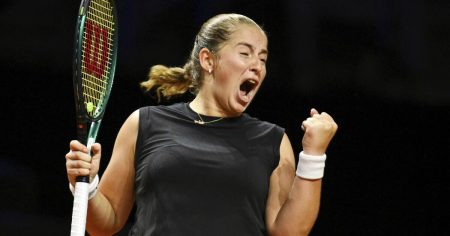Pope Francis, the leader of the Catholic Church, has been facing significant health challenges in recent weeks, according to sources close to the matter. The 86-year-old pontiff has reportedly been experiencing intense pain, which has raised concerns about his ability to continue his duties. On Sunday, doctors at Rome’s Gemelli Hospital took the unusual step of barring him from delivering his regular Sunday morning Angelus sermon, a tradition he has maintained even during previous hospitalizations. This decision clearly distressed the pope, as it marked one of the rare occasions when he was unable to fulfill this important spiritual obligation. One source revealed that Francis is now strictly following his doctors’ orders, indicating a shift in his approach to managing his health.
Those familiar with the situation have also shared that Francis initially resisted the idea of going to the hospital. However, he was reportedly told in stark terms that remaining in his Vatican residence could put his life at risk. This revelation highlights the gravity of his condition and the urgency with which medical professionals are treating it. The pope’s health has been a subject of concern for some time, but the past month has seen a noticeable decline, prompting him to take decisive action on several key initiatives and appointments. This suggests that Francis is actively working to ensure the continuity of his vision for the Church, even as his physical health becomes increasingly fragile.
During his papacy, which began in 2013, Francis has sought to make the Catholic Church more inclusive and progressive. He has opened up key roles to women and members of the LGBT+ community, which has been a significant departure from the Church’s traditional practices. These reforms have drawn fierce criticism from conservative factions within the Church, who view them as a deviation from longstanding doctrine. At the same time, liberals have expressed disappointment that the changes have not gone far enough, highlighting the deep ideological divisions Francis has had to navigate. One of the most contentious issues during his tenure has been his efforts to address the scourge of child abuse by clerics, a problem that has plagued the Church for decades. While Francis has taken steps to root out abuse, the results have been mixed, leaving many to question whether the Church has done enough to hold perpetrators accountable and protect victims.
The discussion of Francis’s health inevitably leads to speculation about the future of the papacy and the process of selecting his successor. Papal succession is, by its very nature, a deeply political process. The College of Cardinals, a group of high-ranking clerics, will gather in a conclave to elect the next pope. This secretive gathering is fraught with intrigue, as different factions within the Church vie for influence. Francis, aware of the potential for conflict, has taken steps to shape the outcome of this process. On February 6, before his recent hospitalization, he extended the term of Italian Cardinal Giovanni Battista Re as the dean of the College of Cardinals. This decision was notable because it bypassed a scheduled vote on the next dean, effectively ensuring that Re would remain in the role.
Re, a seasoned Vatican operator with a long history of service, is not eligible to participate in the conclave himself due to his advanced age. However, his role as dean gives him significant influence over the preparations for the conclave, including the behind-the-scenes discussions that often shape the outcome. Francis’s decision to appoint Re has been interpreted as an attempt to ensure that his legacy is protected. By choosing a figure with whom he is closely aligned, Francis is sending a clear signal about the direction he hopes the Church will take after his departure. This move reflects his awareness of the challenges his progressive agenda has faced and his desire to leave a lasting impact.
The events of recent weeks have underscored the precarious nature of Francis’s health and the potential consequences of his eventual successor. As the pope works to secure his legacy, the Church is bracing for a transition that could have far-reaching implications. The conclave will be a pivotal moment in the Church’s history, as cardinals from around the world come together to choose a new leader. While Francis’s health remains a primary concern, his actions demonstrate a clear commitment to guiding the Church through this uncertain period. The coming months will undoubtedly be a critical time for the Catholic Church, as it navigates the challenges of leadership succession and the ongoing struggle to reconcile tradition with modernity.









